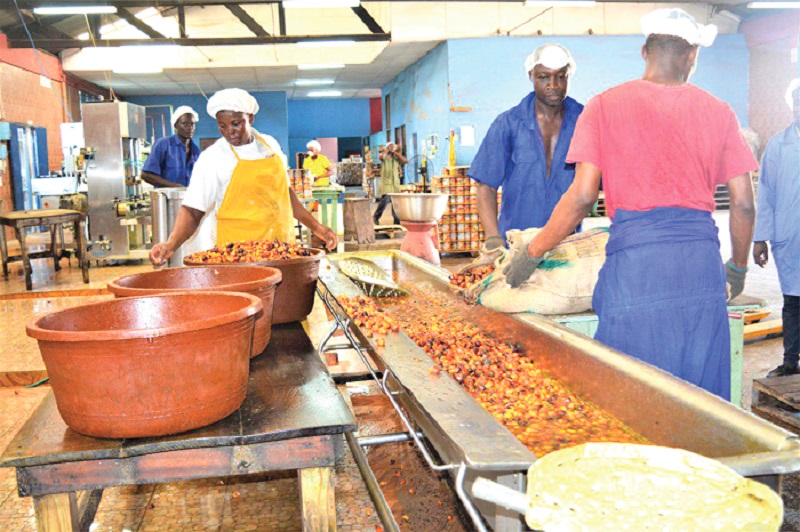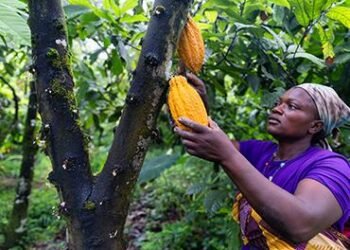The local oil palm industry has commended government on its decision to reintroduce duties on imported vegetable oil, as it has eliminated unfair competition which almost led to major lay-offs in the sector.
On April 4, 2019, government deployed a policy which was a reduction in the benchmark valuation of imports. It commenced on that fateful day by slashing 50 percent off duties on imports of general goods, including vegetable oil.
Speaking on the policy, the Executive Secretary of the Oil Palm Development Association of Ghana (OPDAG), Selorm Quarme lamented that the policy gave importers an unfair advantage over local producers on pricing.
He also stated that prior to the introduction of the benchmark value, a 25 litre (Yellow Gallon) of oil produced locally was selling at One Hundred and Forty-Five Ghana Cedis, (GH¢145) against One Hundred and Fifty Ghana Cedis (GH¢150) for the imported product.
Nevertheless, when the policy was implemented, the imported produce sold at a range between One Hundred and Ten Ghana Cedis and One Hundred and Twenty Ghana Cedis whereas the locally produced vegetable oil still sold at One Hundred and Forty-Five Ghana Cedis.
Mr. Quarme indicated that policy came at the right time to stop layoffs.
“We were wrapping-up with the lay-off numbers when the news [reversal of the policy] came. We are in challenging times and desperate to save our operations. That is why we decided to lay-off some thousands of workers just as other sectors,” he said in an interview.
He is however hopeful that government’s decision will preserve employment opportunities.
“This move will guarantee the continuous employment and sustained livelihoods of a large number of Ghanaian farmers and value chain actors most of whom are smallholders as we look forward to the next big thing – the operationalization of the Tree Crops Development Authority,” he added.
He noted that reversal of the policy could not have come at a better time as the coronavirus pandemic has hit many industries hard and they will need the assistance of government to survive.
“This is the time the sector needs all possible support from government. We have to be able to feed ourselves if the world decides not to export their vegetable oil to us, and this move is one that shows government is listening and acting,” he said.
Mr. Quarme further stated that government’s decision to reverse the policy will lead to expansion of the industry and rather create more jobs.
“With this relief, companies will be able to retain, add-on and pay their employees,” he said.





















